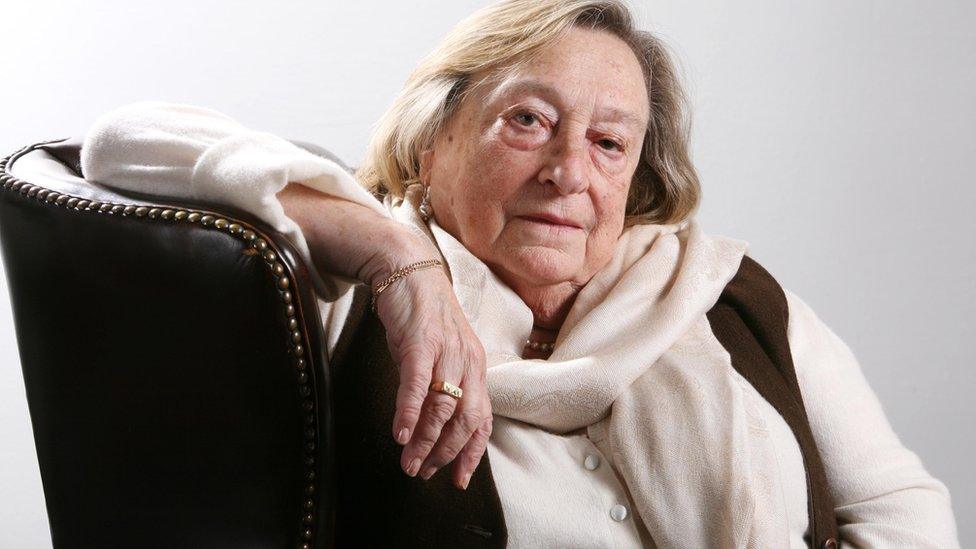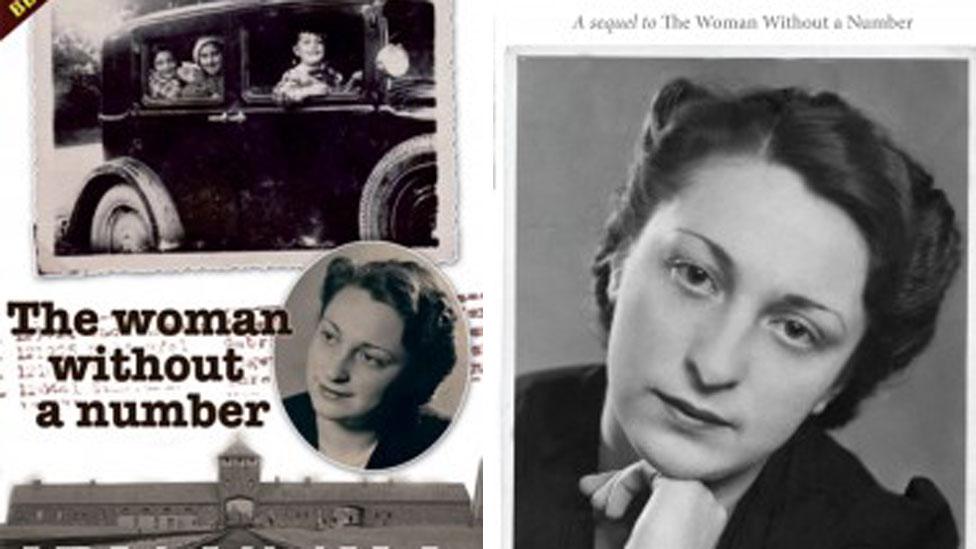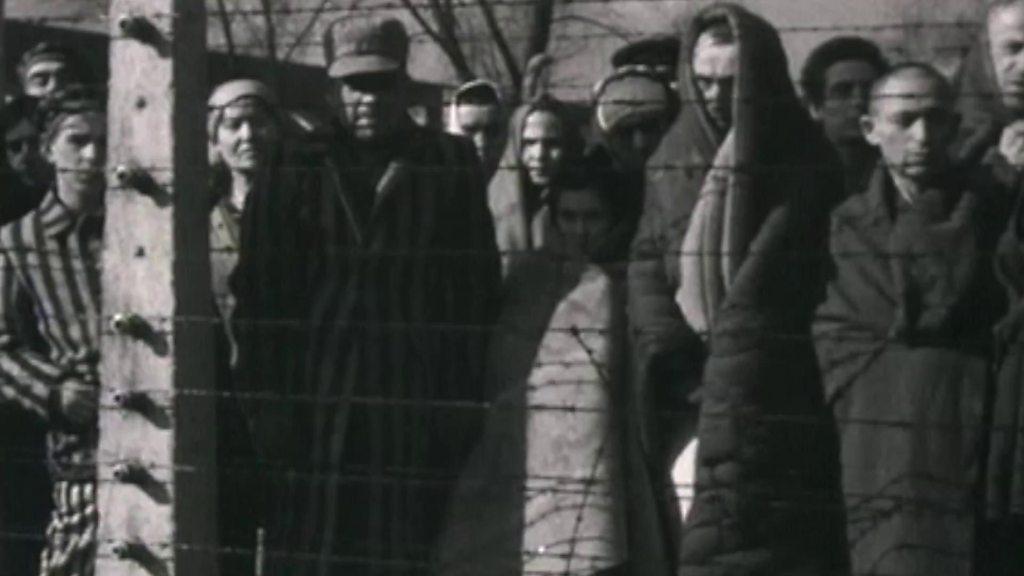Iby Knill: Leeds Holocaust survivor dies aged 98
- Published

Iby Knill often spoke to young people about her experiences during the Holocaust
An "incredible" Holocaust survivor has died 77 years after her liberation from a concentration camp.
Iby Knill, 98, died on Easter Sunday, the same day she was freed from the Auschwitz-Birkenau camp in Nazi-occupied Poland in April 1945.
Mrs Knill had escaped to Hungary from Czechoslovakia earlier in World War Two, but was sent to the camp in 1944.
She was born in 1923 in what is now the Czech Republic and she moved to the UK after the war, living in Leeds.
She had married Bert Knill, a British soldier, in 1946 after her liberation from Auschwitz-Birkenau.
Holocaust survivor Iby Knill talks about her experiences in the Auschwitz-Birkenau camp
About six million Jewish men, women and children, along with members of other groups, were murdered during the Holocaust by Germany's Nazi regime and its collaborators in World War Two.
In Auschwitz, Mrs Knill was initially selected for forced labour.
In a BBC interview, she said she got through her captivity in the concentration camp by "staying together" with her four friends and "living one day at a time".
In the final days of the war, hundreds of the camp's prisoners were forced on a death march.
They were liberated by the American army on Easter Sunday, 1945.
Mrs Knill went on to become a well-known speaker and author about the Holocaust and received a British Empire Medal in the Queen's Honours list in 2017.
She wrote a two-volume autobiography, The Woman Without a Number and The Woman With Nine Lives, and often told her story to young people to educate them about the Holocaust.

Iby Knill had a "positive mental attitude", her publisher Phil Caplan said
Phil Caplan, of Scratching Shed Publishing, which published her autobiography, said: "It is the irony of ironies that Easter Sunday was also the day she was liberated. That circular event in history has added more poignancy.
"She was incredible. To be in her presence was to be overwhelmed with her view of humanity when she could have borne the strongest of grudges."
Mr Caplan said Mrs Knill "had a positive mental attitude and refused to give in".
"She wasn't pinned down to one belief, she was a humanist more than anything. She related to young people and that kept her going," he added.
Among other tributes to Mrs Knill, Frank Gardner, the BBC's security correspondent, said: "Her spirit was indomitable."
Allow X content?
This article contains content provided by X. We ask for your permission before anything is loaded, as they may be using cookies and other technologies. You may want to read X’s cookie policy, external and privacy policy, external before accepting. To view this content choose ‘accept and continue’.
Meanwhile, Karen Pollock, chief executive, of the Holocaust Educational Trust described Mrs Knill as "formidable".
"An active member of the Resistance movement and a survivor of Auschwitz-Birkenau, Iby had a unique story to share," she said.
"She was passionate about sharing her testimony and ensuring the next generation learnt about the horrors of the Holocaust.
"Our thoughts are with her family and friends at this sad time."
Fabian Hamilton, who was Mrs Knill's MP and knew her well, added: "What a stalwart, a completely remarkable women.
"She didn't start talking about her wartime experiences till about 20 years ago but often spoke of how she had stuck together with her friends as had there been any sense of being on your own that person would be picked off.
"You do think people like Iby will go on for ever, she was incredible, a living witness and we should never forget."

Follow BBC Yorkshire on Facebook, external, Twitter, external and Instagram, external. Send your story ideas to yorkslincs.news@bbc.co.uk, external.
Related topics
- Published26 January 2018

- Published29 April 2013
